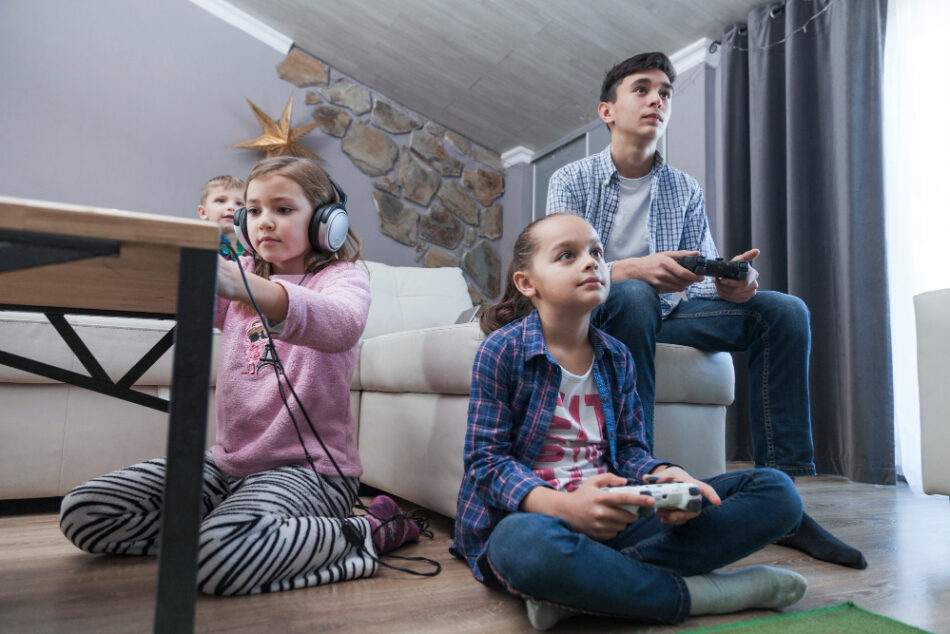Introduction
Fortnite, the popular online multiplayer game developed by Epic Games, has become a global sensation among children and teenagers. With its colorful graphics, fast-paced gameplay, and social interaction features, it’s no wonder that millions of kids are drawn to it.
However, as engaging as it is, Fortnite can also lead to behavioral issues when played excessively. Fortnite addiction in kids has become a growing concern for parents, educators, and mental health professionals alike.
Understanding what Fortnite addiction looks like and learning how to address it are crucial steps to protecting children’s mental health and overall well-being.
What is Fortnite Addiction?
Fortnite addiction in kids refers to a condition where a child plays the game compulsively, to the point that it interferes with daily activities, responsibilities, and relationships.
Like any behavioral addiction, it involves a lack of control, increased tolerance, and withdrawal-like symptoms when not playing.
Although “addiction” is a strong word, it accurately reflects the intensity of emotional and psychological dependence some children develop on the game.
Why is Fortnite So Addictive for Kids?
Several factors contribute to Fortnite’s addictive nature:
-
Reward System: Fortnite uses a system of rewards like skins, emotes, and victory royales, which tap into the brain’s dopamine system. These rewards keep children hooked as they chase the next “win.”
-
Constant Updates: Epic Games regularly updates Fortnite with new content—limited-time modes, seasonal changes, and collaborations with popular franchises. This keeps the game fresh and hard to walk away from.
-
Social Connection: Fortnite is not just a game; it’s a social platform where kids can chat, play, and build teams with their friends. This makes them feel like they’re missing out if they’re not online.
-
Competitive Nature: The Battle Royale format encourages children to keep trying for the top spot, often leading to long gaming sessions and a refusal to stop until they “win.”
Common Signs of Fortnite Addiction in Kids
Recognizing the symptoms early is key to intervening effectively. Here are some common signs of Fortnite addiction in kids:
-
Neglecting Responsibilities: Skipping homework, chores, or family time in favor of playing.
-
Mood Swings: Getting irritable, anxious, or aggressive when not allowed to play.
-
Sleep Issues: Staying up late or waking early just to sneak in more game time.
-
Social Withdrawal: Losing interest in offline friends and preferring virtual interactions.
-
Decline in Academic Performance: Lower grades and reduced attention in class.
-
Dishonesty: Lying about game time or sneaking to play without permission.
If your child exhibits several of these behaviors consistently, it may indicate a deeper issue that needs attention.
Psychological Impact of Fortnite Addiction
Fortnite addiction in kids can have serious emotional and psychological effects. Children who are heavily immersed in the game may experience:
-
Increased Anxiety: Especially related to in-game performance or fear of missing out (FOMO).
-
Depression: Due to isolation and reduced real-life social interaction.
-
Impaired Attention Span: Difficulty focusing on tasks without constant stimulation.
-
Low Self-Esteem: Particularly when comparing themselves to better players.
Moreover, excessive gaming can prevent children from engaging in physical activities, which are essential for their growth and development.
How to Address Fortnite Addiction in Kids
Tackling Fortnite addiction requires a balanced, supportive, and strategic approach. Here are some practical steps:
1. Open Communication
Start by having a non-judgmental conversation with your child. Let them express what they love about Fortnite and why they play so much. Understanding their perspective builds trust and paves the way for meaningful change.
2. Set Clear Limits
Establish daily screen time limits and make sure they are consistently enforced. Use parental controls on gaming consoles or apps to restrict access during homework, meals, or bedtime.
3. Create a Schedule
Develop a balanced routine that includes time for schoolwork, physical activity, family interaction, and hobbies. Make gaming a small, scheduled part of the day rather than the main event.
4. Encourage Other Interests
Introduce your child to other fun activities such as sports, music, or art. Replacing screen time with enriching offline experiences can help them find joy in other areas of life.
5. Lead by Example
Children often mimic their parents. If they see you frequently using your phone or watching screens, they may feel justified in doing the same. Model balanced tech use to reinforce your expectations.
6. Reward Healthy Behavior
Use positive reinforcement to encourage behavior change. Celebrate when your child sticks to their schedule, finishes homework on time, or spends less time gaming.
7. Seek Professional Help
If the addiction persists or worsens, consider consulting a child psychologist or counselor. Therapy can provide tools for emotional regulation, social development, and healthier coping mechanisms.
Digital Detox: When It’s Time for a Break
Sometimes, the best way to reset habits is through a digital detox. This doesn’t mean banning all technology but taking a structured break from gaming.
A short-term detox can help your child regain control over their habits and rebuild their routine. Be sure to plan meaningful offline activities during this period to keep them engaged.
Collaborate With Schools and Communities
Schools can play a vital role in addressing Fortnite addiction in kids. Teachers should be aware of the signs and support students struggling with tech dependence.
Community centers and youth organizations can also offer workshops for parents and children on healthy gaming habits.
Conclusion
Fortnite addiction in kids is a real and growing concern that needs proactive attention. While Fortnite offers entertainment and social connection, too much of it can interfere with a child’s development.
By understanding the root causes, recognizing the warning signs, and taking deliberate action, parents and caregivers can help their children develop a healthier relationship with gaming.
The goal isn’t to eliminate gaming entirely, but to ensure it complements rather than controls a child’s life. With guidance, structure, and support, children can enjoy Fortnite without letting it define their world.







